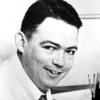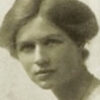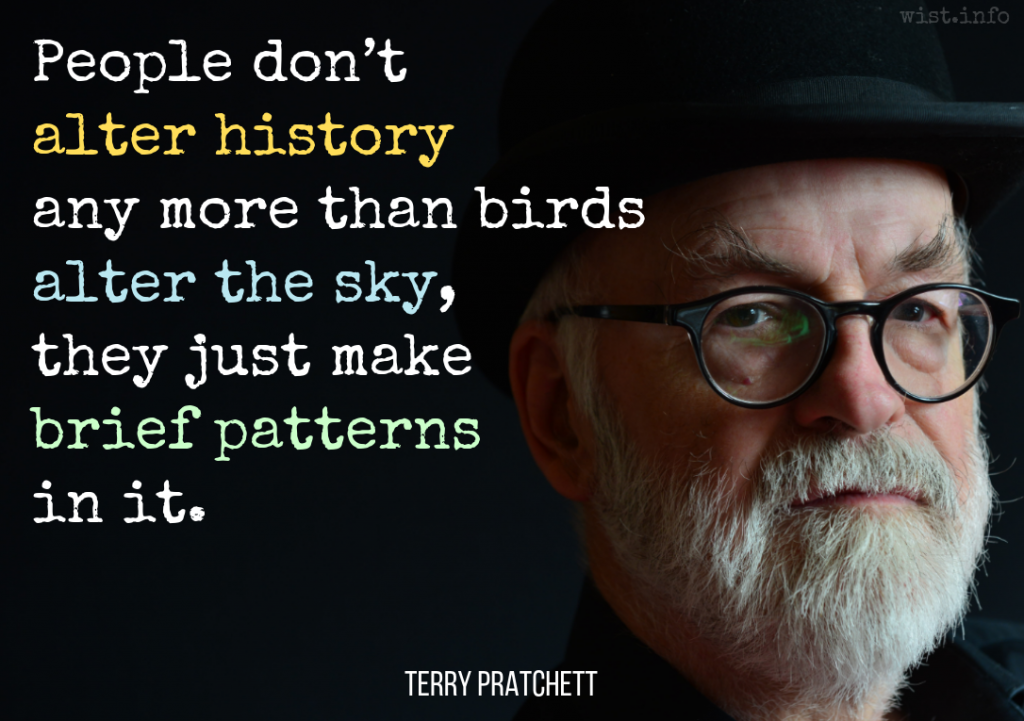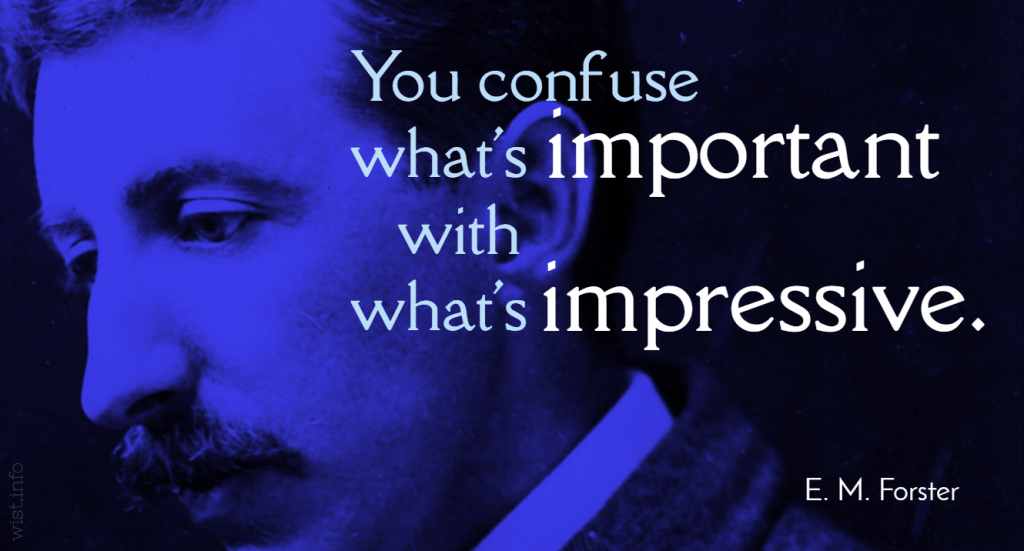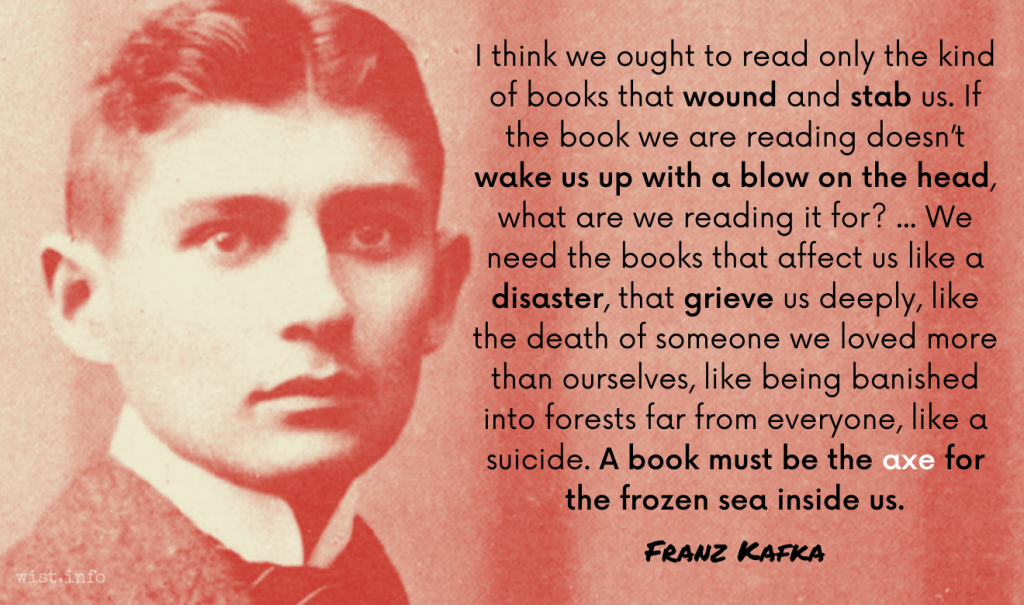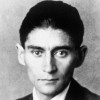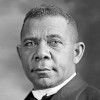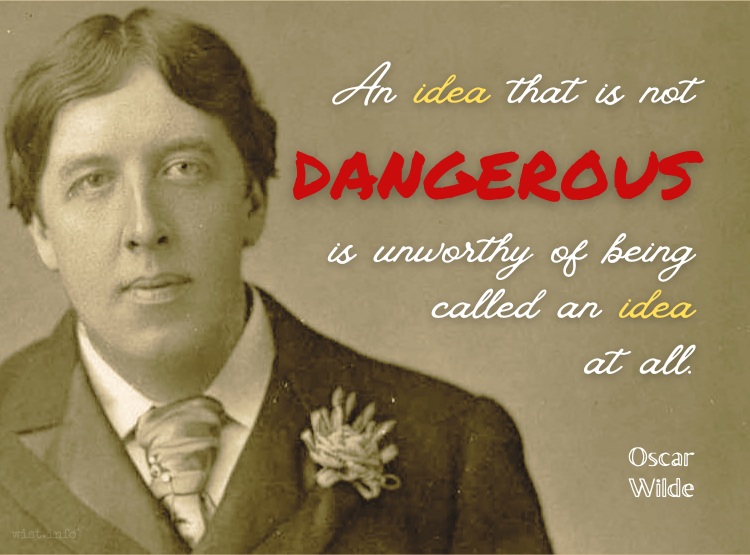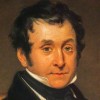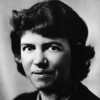By some happy fortuity, man is a projector, a designer, a builder, a craftsman; it is among his most dependable joys to impose upon the flux that passes before him some mark of himself, aware though he always must be of the odds against him. His reward is not so much in the work as in its making; not so much in the prize as in the race. We may win when we lose, if we have done what we can; for by so doing we have made real at least some part of that finished product in whose fabrication we are most concerned: ourselves.
Learned Hand (1872-1961) American jurist
Speech (1955-01-29), “A Fanfare for Prometheus,” American Jewish Committee annual dinner, New York City
(Source)
Quotations about:
impact
Note not all quotations have been tagged, so Search may find additional quotes on this topic.
Again, we should notice the force, effect, and consequences of inventions, which are nowhere more conspicuous than in those three which were unknown to the ancients; namely, printing, gunpowder, and the compass. For these three have changed the appearance and state of the whole world; first in literature, then in warfare, and lastly in navigation: and innumerable changes have been thence derived, so that no empire, sect, or star, appears to have exercised a greater power and influence on human affairs than these mechanical discoveries.
[Rursus, vim et virtutem et consequentias rerum inventarum notare juvat; quae non in aliis manifestius occurrunt, quam in illis tribus quae antiquis incognitae, et quarum primordia, licet recentia, obscura et ingloria sunt: Artis nimirum Imprimendi, Pulveris Tormentarii, et Acus Nauticae. Haec enim tria rerum faciem et statum in orbe terrarum mutaverunt: primum, in re literaria; secundum, in re bellica; tertium, in navigationibus: unde innumerae rerum mutationes sequutae sunt; ut non imperium aliquod, non secta, non stella, majorem efficaciam et quasi influxum super res humanas exercuisse videatur, quam ista mechanica exercuerunt.]
Francis Bacon (1561-1626) English philosopher, scientist, author, statesman
Instauratio Magna [The Great Instauration], Part 2 “Novum Organum [The New Organon],” Book 1, Aphorism # 129 (1620) [tr. Wood (1831)]
(Source)
(Source (Latin)). Alternate translations:
Again, it is well to observe the force and virtue and consequences of discoveries; and these are to be seen nowhere more conspicuously than in those three which were unknown to the ancients, and of which the origin, though recent, is obscure and inglorious; namely, printing, gunpowder, and the magnet. For these three have changed the whole face and state of things throughout the world; the first in literature, the second in warfare, the third in navigation; whence have followed innumerable changes; insomuch that no empire, no sect, no star seems to have exerted greater power and influence in human affairs than these mechanical discoveries.
[tr. Spedding (1858)]
Again, it is well to mark the force, virtue, and consequences of discoveries; and these occur nowhere more manifestly than in those which were unknown to the ancients, and whose origin, though recent, is obscure and inglorious; the Arts, namely, of Printing, of Gunpowder, and the Mariner's Compass. For these three have changed the face and condition of things all over the world; the first in letters, the second in war, the third in navigation. And hence numberless changes have followed; so that no government, no sect, no star, seems to have exercised greater power and influence over human affairs than these mechanical discoveries.
[tr. Johnson (1859)]
Again, it helps to notice the force, power and consequences of discoveries, which appear at their clearest in three things that were unknown to antiquity, and whose origins, though recent, are obscure and unsung: namely, the art of printing, gunpowder and the nautical compass. In fact these three things have changed the face and condition of things all over the globe: the first in literature; the second in the art of war; the third in navigation; and innumerable changes have followed; so that no empire or sect or star seems to have exercised a greater power and influence on human affairs than those mechanical things.
[tr. Silverthorne (2000)]
Notice the vigour of discoveries, their power to generate consequences. This is nowhere more obvious than in three discoveries that the ancients didn’t know and whose origins (all quite recent) were obscure and humdrum. I am talking about the arts of printing, gunpowder, and the nautical compass. These three have changed the whole aspect and state of things throughout the world -- the first in literature, the second in warfare, the third in navigation -- bringing about countless changes; so that there seems to have been no empire, no philosophical system, no star that has exerted greater power and influence in human affairs than these mechanical discoveries.
[tr. Bennett (2017)]
I have come to the frightening conclusion that I am the decisive element in the classroom. It is my personal approach that creates the climate. It is my daily mood that makes the weather. As a teacher, I possess a tremendous power to make a child’s life miserable or joyous. I can be a tool of torture or an instrument of inspiration. I can humiliate or humor, hurt or heal. In all situations, it is my response that decides whether a crisis will be escalated or de-escalated, a child humanized or de-humanized.
Haim Ginott (1922-1973) Israeli-American school teacher, child psychologist, psychotherapist [b. Haim Ginzburg]
Teacher and Child, Preface (1972)
(Source)
Quoting his writing as a young teacher.
Children learn what they experience. They are like wet cement. Any word that falls on them makes an impact.
Haim Ginott (1922-1973) Israeli-American school teacher, child psychologist, psychotherapist [b. Haim Ginzburg]
Between Parent and Child: Revised and Updated Edition, ch. 10 “Summing Up” (2003 ed.) [with A. Ginott and H. W. Goddard]
(Source)
Frequently paraphrased (e.g.) as "Children are like wet cement. Whatever falls on them makes an impression."
This is usually cited as being from the original 1965 edition of the book, but cannot be found there. Instead, it appears to be from the 2003 edition, as revised and updated by his wife, Dr Alice Ginott, and Dr H Wallace Goddard. It is unclear if Haim Ginott may have used this phrase in other contexts.
All work is as seed sown; it grows and spreads, and sows itself anew.
Thomas Carlyle (1795-1881) Scottish essayist and historian
“Boswell’s Life of Johnson,” Critical and Miscellaneous Essays (1827-1855)
(Source)
Originally published in Fraser's Magazine, Vol 5, # 28 (1832). Reviewing a new 1831 edition of James Boswell, The Life of Samuel Johnson.
No normal man who has smelled and associated with death ever wants to see any more of it. In fact, the only men who are even going to want to bloody noses in a fist fight after this war will be those who want people to think they were tough combat men, when they weren’t. The surest way to become a pacifist is to join the infantry.
Life, struck sharp on death,
Makes awful lightning.Elizabeth Barrett Browning (1806-1861) English poet
Aurora Leigh, Book 1, ll. 210–211 (1856)
(Source)
Machines are a great thing, but if one replaces a hundred men, it don’t buy anything, it don’t eat anything, while the hundred men spend theirs back for food, shelter, and hundreds of various commodities for them and their families.
“Here is where you can’t afford to be lazy,”
My Master said. “Lying in feather beds,
Or under quilts, no one conquers fame,
Without which, once your earthly life is dead,
The only traces you leave behind you are smoke
Blown in the air or bubbles breaking in water.[“Omai convien che tu così ti spoltre”,
disse ’l maestro; “ché, seggendo in piuma,
in fama non si vien, né sotto coltre;
sanza la qual chi sua vita consuma,
cotal vestigio in terra di sé lascia,
qual fummo in aere e in acqua la schiuma.”]Dante Alighieri (1265-1321) Italian poet
The Divine Comedy [Divina Commedia], Book 1 “Inferno,” Canto 24, l. 46ff (24.46-51) [Virgil] (1309) [tr. Raffel (2010)]
(Source)
The analogy of life to smoke and foam have been noted by commentators as resembling similar metaphors in Wisdom 2:1-4 and 5:14 and the Aeneid 5.740.
Virgil's urging of Dante to continue on out of a desire for fame, rather than to learn how to be saved or to come closer to God, have only recently been interpreted as an intentional showing that the poet/guide is not perfect -- another reason, beyond being only a virtuous pagan, that he cannot complete the journey with Dante to Paradise. (See here for more commentary on this.)
(Source (Italian)). Alternate translations:
It now is proper, said my Lord, that you
Should from this bed of yours arise; for they
Ne'er Fame acquire who spend their lives in down:
He who, without pursuing her, consumes
His time, leaves himself such tracts behind,
As Froth in Water, or as Smoke in Air.
[tr. Rogers (1782), ll. 44-49]
Arise! -- In vain the slumb'ring soul aspires,
(Her powers betray'd by sloth, extinct her fires)
In vain she tries the dazzling heights of fame:
As morning fogs disperse to meet no more,
As the waves close behind the lab'ring oar,
The dastard soul expires without a name!
[tr. Boyd (1802), st. 9]
“Now needs thy best of man;” so spake my guide:
“For not on downy plumes, nor under shade
Of canopy reposing, fame is won,
Without which whosoe’er consumes his days
Leaveth such vestige of himself on earth,
As smoke in air or foam upon the wave."
[tr. Cary (1814)]
"Rouse thee," my master urged, "'tis time to throw
This lethargy aside; who dozing lies
'Tween coverlet and feathers, ne'er shall know
Renown, and without her who wastes and dies,
Leaves of himself like trace on earth behind,
As foam on wave, or vapour on the skies."
[tr. Dayman (1843)]
"Now it behooves thee thus to free thyself from sloth," said the Master: "for sitting on down, or under coverlet, man come not into fame;
without which whoso consumes his his life, leaves such vestige of himself on earth, as smoke in air or foam in water."
[tr. Carlyle (1849)]
"Henceforth you must abandon indolence,"
My master said: "'tis not repose on plumes
That leads to fame -- nor yet in shady glooms;
Without the which if one consumes his life,
E'en such a vestige upon the earth he'll make
As smoke in air, or foam on water's track."
[tr. Bannerman (1850)]
"Now it befits thee to shake off this sloth,"
The Master said, "for resting upon down,
And under quilts is not the way to fame;
And without this he who his life consumes,
Leaves of himself on earth no better trace,
Than smoke in air or on the water foam."
[tr. Johnston (1867)]
"Now it behoves thee thus to put off sloth,"
My Master said; "for sitting upon down,
Or under quilt, one cometh not to fame,
Without which whoso his life consumes
Such vestige leaveth of himself on earth,
As smoke in air or in the water foam."
[tr. Longfellow (1867)]
"Henceforward it behoves that thou brace thyself thus," said the Master; "for not by sitting on feathers does one come into fame, nor under quilts; without the which whoso consumes his life leaves such trace on earth of himself as smoke in air or its froth on water."
[tr. Butler (1885)]
"Henceforth 'tis fitting thou shouldst shake off sloth,"
The master cried, "since idly lapt in down
'Neath coverlets, for him Fame never groweth.
Who so his life consumes without renown.
Leaves such a vestige of himself on earth,
As it were froth on air or water blown."
[tr. Minchin (1885)]
“Now it behoves thee thus to put off sloth,” said the Master, “for, sitting upon down or under quilt, one attains not fame, without which he who consumes his life leaves of himself such trace on earth as smoke in air, or in water the foam."
[tr. Norton (1892)]
"'Tis thus that thou must now shake thyself free from sloth," my Master said, "for seated on down, or under coverlet, man cometh not to fame; unattended by which whoso doth spend his days, leaveth such traces of himself on earth, as smoke in air or foam on water."
[tr. Sullivan (1893)]
"Thus must thou ever shake off sloth henceforward;"
The Master said, " for sitting upon feathers
Man cometh not to fame, nor under quilting;
Which lacking, whosoe'er consumes his life-time
Leaves of himself on earth just such a vestige
As smoke doth leave in air, and foam in water."
[tr. Griffith (1908)]
"Now must thou thus cast off all sloth," said the Master "for sitting on down or under blankets none comes to fame, and without it he that consumes his life leaves such trace of himself on earth as smoke in air or foam on water."
[tr. Sinclair (1939)]
"Now it behoveth lassitude to leave,"
The Master said, "for softly on down reclined
Or under coverlet, none can fame achieve,
Without which he who dallieth leaves behind
Such vestige of himself on earth imprest
As foam in water or smoke upon the wind."
[tr. Binyon (1943)]
"Put off this sloth," the master said, "for shame!
Sitting on feather-pillows, lying reclined
Beneath the blanket is no way to fame --
Fame, without which man's life wastes out of mind,
Leaving on earth no more memorial
Than foam in water or smoke upon the wind."
[tr. Sayers (1949)]
"Up on your feet! This is no time to tire!"
my Master cried. "The man who lies asleep
will never waken fame, and his desire
and all his life drift past him like a dream,
and the traces of his memory fade from time
like smoke in the air, or ripples on a stream."
[tr. Ciardi (1954)]
“Now it behooves you thus to cast off sloth,” said my master, “for sitting on down or under coverlet, no one comes to fame, without which whoso consumes his life leaves such vestige of himself on earth as smoke in air or foam on water."
[tr. Singleton (1970)]
"Come on, shake off the covers of this sloth,"
the master said, "for sitting softly cushioned,
or tucked in bed, is no way to win fame;
and without it man must waste his life away,
leaving such traces of what he was on earth
as smoke in wind and foam upon the water."
[tr. Musa (1971)]
“Now you must cast aside your laziness,”
my master said, “for he who rests on down
or under covers cannot come to fame;
and he who spends his life without renown
leaves such a vestige of himself on earth
as smoke bequeaths to air or foam to water."
[tr. Mandelbaum (1980)]
"Now is the time for you to rouse yourself,"
The master said; "for sitting on a cushion
Is not the way to fame, nor staying in bed;
And without fame, a man must spend his life
Only to leave such traces upon earth
As smoke leaves in the air, or foam in the water."
[tr. Sisson (1981)]
"To cast off sloth
Now well behooves you," said my master then:
"For resting on soft down, or underneath
The blanket's cloth, is not how fame is won --
Without which, one spends life to leave behind
As vestige of himself on earth the sign
Smoke leaves on air, or foam on water."
[tr. Pinsky (1994), l. 46ff]
“From now on you will have to cast off sloth in this way,” said my master, “for one does not gain fame sitting on down cushions, or while under coverlets;
and whoever consumes his life without fame leaves a mark of himself on earth like smoke in the air or foam in water."
[tr. Durling (1996)]
Now, you must free yourself from sloth: men do not achieve fame, sitting on down, or under coverlets; fame, without which whoever consumes his life leaves only such trace of himself, on earth, as smoke does in the air, or foam on water.
[tr. Kline (2002)]
"Now you must needs," my teacher said, "shake off
your wonted indolence. No fame is won
beneath the quilt or sunk in feather cushions.
Whoever, fameless, wastes his life away,
leaves of himself no greater mark on earth
than smoke in air or froth upon the wave."
[tr. Kirkpatrick (2006)]
'Now must you cast off sloth,' my master said.
'Sitting on feather cushions or stretched out
under comforters, no one comes to fame.
Without fame, he who spends his time on earth
leaves only such a mark upon the world
as smoke does on the air or foam on water.'
[tr. Hollander/Hollander (2007)]
“Now you must,”
My Guide said, “quell the slothful urge to rest.
A swansdown seat and a soft blanket just
Keep you from fame, without which no one who
Consumes his life leaves more trace in the world
Than smoke in air and foam on water do."
[tr. James (2013)]
Oh, if at every moment of our lives we could know the consequences of some of the utterings, thoughts and deeds that seem so trivial and unimportant at the time! And should we not conclude from such examples that there is no such thing in life as unimportant moments devoid of meaning for the future?
Isabelle Eberhardt (1877-1904) Swiss-Russian explorer and author [Si Mahmoud Saadi]
The Passionate Nomad: The Diary of Isabelle Eberhardt , “26 November 1901” (1987)[tr. de Voogd]
(Source)
But heard are the voices,
Heard are the sages,
The Worlds and the Ages:
“Choose well: your choice is
Brief, and yet endless.”[Doch rufen von drüben
Die Stimmen der Geister
Die Stimmen der Meister:
Bersäumt nich zu üben
Die Kräfte des Guten.]Johann Wolfgang von Goethe (1749-1832) German poet, statesman, scientist
“Symbolum” (1815) [tr. Carlyle (1843)]
(Source)
(Source (German)).
Carlyle's loose translation first appears in Past and Present, Book 2, ch. 17 "The Beginnings" (1843), then is expanded in a speech at the University of Edinburgh (2 Apr 1866), reprinted (with Goethe's original) in On the Choice of Books (1877).
"Choose well: your choice is brief and yet endless," is sometimes attributed to Ella Winter. She references it in an anecdote in And Not to Yield: An Autobiography (1963).
Why have I always told you that the greatest way to change the world is to secretly commit little acts of compassion? It does not matter that people know what you are doing, but rather that you do it. When a large enough number of people finally do something, or something is done enough times, be it prayer or vegetarianism or whatever, it will then happen everywhere, to everyone. It will suddenly seem just normal. […] You must behave as if your every act, even the smallest, impacted a thousand people for a hundred generations. Because it does.
Thomas "Thom" Hartmann (b. 1951) American broadcaster, psychotherapist, businessman, political commentator
The Prophet’s Way: A Guide to Living in the Now, “The Hundredth Monkey” (1997)
(Source)
Often quoted as:
The most powerful way to change the world is to secretly commit little acts of compassion. You must behave as if your every act, even the smallest, impacted a thousand people for a hundred generations. Because it does.
Awful as silence. Hark! the rushing snow!
The sun-awakened avalanche! whose mass,
Thrice sifted by the storm, had gathered there
Flake after flake, in heaven-defying minds
As thought by thought is piled, till some great truth
Is loosened, and the nations echo round,
Shaken to their roots, as do the mountains now.
The national unity of a free people depends upon a sufficiently even balance of political power to make it impracticable for the administration to be arbitrary and for the opposition to be revolutionary and irreconcilable. Where that balance no longer exists, democracy perishes. For unless all the citizens of a state are forced by circumstances to compromise, unless they feel that they can affect policy but that no one can wholly dominate it, unless by habit and necessity they have to give and take, freedom cannot be maintained.
Walter Lippmann (1889-1974) American journalist and author
“The Indispensable Opposition,” The Atlantic Monthly (Aug 1939)
(Source)
Words are more powerful than perhaps anyone suspects, and once deeply engraved in a child’s mind, they are not easily eradicated.
May Sarton (1912-1995) Belgian-American poet, novelist, memoirist [pen name of Eleanore Marie Sarton]
I Knew a Phoenix, “A Belgian School” (1959)
(Source)
The more articulate one is, the more dangerous words become.
May Sarton (1912-1995) Belgian-American poet, novelist, memoirist [pen name of Eleanore Marie Sarton]
Journal of a Solitude, “September 16th” (1973)
(Source)
Life is political, not because the world cares about how you feel, but because the world reacts to what you do.
Timothy Snyder (b. 1969) American historian, author
On Tyranny: Twenty Lessons from the Twentieth Century (2017)
(Source)
Every day of our lives we are on the verge of making those changes that would make all the difference.
Mignon McLaughlin (1913-1983) American journalist and author
The Neurotic’s Notebook, ch. 4 (1963)
(Source)
The vanity of man revolts from the serene indifference of the cat.
Political strategies and tactics are not jealous lovers. You don’t have to be monogamous. Direct Action will not feel betrayed if you also vote from time to time — you can be poly in your tactics. And I am. Of course I vote! If you’re a woman, or a person of color, or a person who doesn’t own property, or even a white male who doesn’t belong to the nobility, centuries of struggle and many deaths have bought you the right to vote. I vote to keep faith with peasant rebels and suffragist hunger strikers and civil rights workers braving the lynch mobs of the South, if for no other reason. But there is another reason — because who we vote for has an enormous impact on real peoples’ lives.
Starhawk (b. 1951) American writer, activist, feminist theologian [b. Miriam Simos]
“Pre-Election Day Thoughts,” blog post (7 Nov 2016)
(Source)
But although foreign and internal threats of Fascism must be taken seriously, there is no greater mistake and no graver danger than not to see that in our own society we are faced with the same phenomenon that is fertile soil for the rise of Fascism anywhere: the insignificance and powerlessness of the individual.
Erich Fromm (1900-1980) American psychoanalyst and social philosopher
Escape from Freedom, ch. 7, sec. 1 (1941)
(Source)
A man can look upon his life and accept it as good or evil; it is far, far harder for him to confess that it has been unimportant in the sum of things.
Murray Kempton (1917-1997) American journalist.
Part of Our Time: Some Ruins & Monuments of the Thirties, ch. 5 (1955)
(Source)
Every man is a consumer, and ought to be a producer. He fails to make his place good in the world, unless he not only pays his debt, but also adds something to the common wealth.
Ralph Waldo Emerson (1803-1882) American essayist, lecturer, poet
“Wealth,” The Conduct of Life, ch. 3 (1860)
(Source)
Malice is of a low Stature, but it hath very long Arms.
George Savile, Marquis of Halifax (1633-1695) English politician and essayist
“Of Malice and Envy,” Political, Moral, and Miscellaneous Thoughts and Reflections (1750)
(Source)
I distrust Great Men. They produce a desert of uniformity around them and often a pool of blood too, and I always feel a little man’s pleasure when they come a cropper.
E. M. Forster (1879-1970) English novelist, essayist, critic, librettist [Edward Morgan Forster]
“What I Believe,” The Nation (16 Jul 1938)
(Source)
People don’t alter history any more than birds alter the sky, they just make brief patterns in it.
The essence of the Epistles of Paul is that Christians should rejoice at being deemed worthy to suffer for what they believe. The projection of a social gospel, in my opinion, is the true witness of a Christian life. This is the meaning of the true ekklesia — the inner, spiritual church. The church once changed society. It was then a thermostat of society. But today I feel that too much of the church is merely a thermometer, which measures rather than molds popular opinion.
Martin Luther King, Jr. (1929-1968) American clergyman, civil rights leader, social activist, preacher
Playboy interview (Jan 1965)
(Source)
You confuse what’s important with what’s impressive.
E. M. Forster (1879-1970) English novelist, essayist, critic, librettist [Edward Morgan Forster]
Maurice (w. 1914, pub. 1971)
(Source)
When you teach your son, you teach your son’s son.
The Talmud (AD 200-500) Collection of Jewish rabbinical writings
Seder Nashim, Kiddushin 30a
Paraphrase of "This serves to say to you that whoever teaches his son Torah, the verse ascribes him credit as though he taught him, and his son, and his son’s son, until the end of all generations" (alt. trans. "to him who teaches his son Torah, the Writ ascribes merit as though he had taught him, his son and his son's son until the end of all time!"). This is in turn referenced to Deut. 4:9.
It was later that the story of Windle Poons really came to an end, if “story” means all that he did and caused and set in motion. In the Ramtop village where they dance the real Morris dance, for example, they believe that no one is finally dead until the ripples they cause in the world die away — until the clock he wound up winds down, until the wine she made has finished its ferment, until the crop they planted is harvested. The span of someone’s life, they say, is only the core of their actual existence.
From one small spark can come a mighty blaze.
[Poca favilla gran fiamma seconda.]Dante Alighieri (1265-1321) Italian poet
The Divine Comedy [Divina Commedia], Book 3 “Paradiso,” Canto 1, l. 34 (1.34) (1320) [tr. Musa (1984)]
(Source)
Dante, in a metaphorical prayer to Apollo, hoping his meager efforts describing Paradise will inspire better ones from future poets. The phrase has become proverbial in Italy.
(Source (Italian)). Alternate translations:
From a small spark
Great flame hath risen.
[tr. Cary (1814)]
The spark comes first, and then a mighty flame.
[tr. Bannerman (1850)]
A little spark is followed by great flame.
[tr. Longfellow (1867)]
A mighty flame follows a little spark.
[tr. Butler (1885)]
Great flame may follow from a spark but brief.
[tr. Minchin (1885)]
Great flame follows a little spark.
[tr. Norton (1892)]
A mighty flame followeth a tiny spark.
[tr. Wicksteed (1899)]
A great flame follows a little spark.
[tr. Sinclair (1939)]
A small spark kindles a great flame beyond.
[tr. Binyon (1943)]
From one small spark springs up a mighty flare.
[tr. Sayers/Reynolds (1962)]
Great flames are kindled where the small sparks fly.
[tr. Ciardi (1970)]
A great flame follows a little spark.
[tr. Singleton (1975)]
A little spark brings a great flame after it.
[tr. Sisson (1981)]
Great fire can follow a small spark.
[tr. Mandelbaum (1984)]
A tiny spark can result in a great flame.
[tr. Durling (2011)]
A great flame follows a tiny spark
[tr. Kline (2002)]
A minute spark precedes a towering flame.
[tr. Kirkpatrick (2007)]
Great fire leaps from the smallest spark.
[tr. Hollander/Hollander (2007)]
Tiny sparks can produce a noble flame.
[tr. Raffel (2010)]
A little spark, later a great flame.
[tr. Bang (2021)]
The voice of passion is better than the voice of reason.
The passionless cannot change history.Czesław Miłosz (1911-2004) Polish-Lithuanian poet, essayist, diplomat
“The Child of Europe” (1946)
(Source)
And now go, and make interesting mistakes, make amazing mistakes, make glorious and fantastic mistakes. Break rules. Leave the world more interesting for your being here. Make good art.
Neil Gaiman (b. 1960) British author, screenwriter, fabulist
Speech (2012-05-17), Commencement, University of the Arts, Philadelphia [19:28]
(Source)
I think we ought to read only the kind of books that wound and stab us. If the book we are reading doesn’t wake us up with a blow on the head, what are we reading it for? So that it will make us happy, as you write? Good Lord, we would be happy precisely if we had no books, and the kind of books that make us happy are the kind we could write ourselves if we had to. But we need the books that affect us like a disaster, that grieve us deeply, like the death of someone we loved more than ourselves, like being banished into forests far from everyone, like a suicide. A book must be the axe for the frozen sea inside us. That is my belief.
[Ich glaube, man sollte überhaupt nur solche Bücher lesen, die einen beißen und stechen. Wenn das Buch, das wir lesen, uns nicht mit einem Faustschlag auf den Schädel weckt, wozu lesen wir dann das Buch? Damit es uns glücklich macht, wie Du schreibst? Mein Gott, glücklich wären wir eben auch, wenn wir keine Bücher hätten, und solche Bücher, die uns glücklich machen, könnten wir zur Not selber schreiben. Wir brauchen aber die Bücher, die auf uns wirken wie ein Unglück, das uns sehr schmerzt, wie der Tod eines, den wir lieber hatten als uns, wie wenn wir in Wälder verstoßen würden, von allen Menschen weg, wie ein Selbstmord, ein Buch muß die Axt sein für das gefrorene Meer in uns. Das glaube ich.]
Franz Kafka (1883-1924) Czech-Austrian Jewish writer
Letter to Oskar Pollak (1904-01-27) [tr. Winston (1977)]
(Source)
This passage (in translation) is frequently only partially quote, particularly the final "ice axe" line, making parallel translations difficult. I have tried to give as full quotations as I could find.
(Source (German)). Alternate translations:
Altogether, I think we ought to read only books that bite and sting us. If the book we are reading doesn't shake us awake like a blow to the skull, why botehr reading it in the first place? So that it can make us happy, as you put it? Good God, we'd be just as happy if we had no books at all; books that make us happy we could, in a pinch, also write ourselves. What we need are books that hit us like a most painful misfortune, like the death of someone we loved more than we love ourselves, that make us feel as though we had been banished to the woods, far from any human presence, like a suicide. A book must be the ax for the frozen sea within us. That is what I believe.
[tr. Pawel (1984)]
If the book we are reading does not wake us, as with a fist hammering on our skulls, then why do we read it? Good God, we also would be happy if we had no books and such books that make us happy we could, if need be, write ourselves. What we must have are those books that come on us like ill fortune, like the death of one we love better than ourselves, like suicide. A book must be an ice axe to break the sea frozen inside us.
[E.g. (1987)]
The books we need are the kind that act upon us like a misfortune, that make us suffer like the death of someone we love more than ourselves, that make us feel as though we were no the verge of suicide, or losrt in a forest remote from all human habitation -- a book should serve as the ax for the frozen sea within us.
[tr. Rahv (1952)]
A book should be an ice-axe to break the frozen sea within us.
[E.g.]
A book must be an ice-axe to break the seas frozen inside our soul.
[E.g.]
The world cares very little about what a man or woman knows; it is what the man or woman is able to do that the world cares about.
Booker T. Washington (1856-1915) American educator, writer
“Mind and Matter,” Speech, Alabama State Teachers’ Association, Selma (5 Jun 1895)
Washington reused material in various speeches he gave. In an address to the African Methodist Episcopal Zion Church, Boston (30 July 1903), he phrased this: "The world cares very little what you or I know, but it does care a great deal about what you or I do."
Presidents quickly realize that while a single act might destroy the world they live in, no one single decision can make life suddenly better or can turn history around for the good.
Lyndon B. Johnson (1908-1973) American politician, educator, US President (1963-69)
Speech (1966-09-13), Signing a Bill Extending the Peace Corps Act, Georgetown University
(Source)
Broader context:
To hunger for use, and to go unused, is the worst hunger of all. [...] It is true that few men have the power by a single act of theirs or in a single lifetime to shape history for themselves. Presidents, for example, quickly realize that while a single act might destroy the world they live in, no one single decision can make life suddenly better or can turn history around all for the good. But Presidents do know that a nation is the sum total of what we all do together; that the deeds and desires of each citizen fashion our character and shape our world -- just as one tiny drop of water after another will ultimately make a mighty river.
To love what you do and feel that it matters — how could anything be more fun?
Katharine Graham (1917-2001) American newspaper publisher
In “The Power That Didn’t Corrupt,” Ms. Magazine (Oct 1974)
More discussion of this quotation's origins here: To Love What You Do and Feel That It Matters—How Could Anything Be More Fun? – Quote Investigator.
Sometimes misquoted as "how could anything else be more fun".
An idea that is not dangerous is unworthy of being called an idea at all.
Oscar Wilde (1854-1900) Irish poet, wit, dramatist
“The Critic as Artist,” Part 2 [Gilbert], Intentions (1891)
(Source)
O poor mortals, how ye make this Earth bitter for each other; this fearful and wonderful Life fearful and horrible; and Satan has his place in all hearts! Such agonies and ragings and wailings ye have, and have had, in all times: — to be buried all, in so deep silence; and the salt sea is not swoln with your tears.
Thomas Carlyle (1795-1881) Scottish essayist and historian
The French Revolution: A History, Part 1, Book 5, ch. 5 (1.5.5) (1837)
(Source)
As the prospect of violence mounts within Paris on the night of 13 July 1789. The next day was the storming of the Bastille.
And is he dead whose glorious mind
Lifts thine on high?
To live in the hearts we leave
Is not to die!
We don’t have to be “successful,” only valuable. We don’t have to make money, only a difference, and particularly in the lives society counts least and puts last.
William Sloane Coffin, Jr. (1924-2006) American minister, social activist
Credo, “Faith, Hope, Love” (2004)
(Source)
Everyone must leave something behind when he dies, my grandfather said. A child or a book or a painting or a house or a wall built or a pair of shoes made. Or a garden planted. Something your hand touched some way so your soul has somewhere to go when you die, and when people look at that tree or that flower you planted, you’re there. It doesn’t matter what you do, he said, so as long as you change something from the way it was before you touched it into something that’s like you after you take your hands away.
Ray Bradbury (1920-2012) American writer, futurist, fabulist
Fahrenheit 451, ch. 3 [Granger] (1953)
(Source)
Beautiful it is to see and understand that no worth, known or unknown, can die even in this earth. The work an unknown good man has done is like a vein of water flowing hidden underground, secretly making the ground green; it flows and flows, it joins itself with other veins and veinlets; one day, it will start forth as a visible perennial well.
Thomas Carlyle (1795-1881) Scottish essayist and historian
“Varnhagen von Ense’s Memoirs,” London and Westminster Review, No. 62 (1838-12)
(Source)
A review of three books involving Lady Rahel Varnhagen von Ense.
Never doubt that a small group of thoughtful, committed citizens can change the world. Indeed, it is the only thing that ever has.
Margaret Mead (1901-1978) American anthropologist
(Attributed)
Phrase frequently attributed to Mead, but not found in her writings. The first sentence, however, is trademarked.
Mead founded the Institute for Intercultural Studies in 1944 (it dissolved in 2009). Regarding this quote, the IIS noted on its still extant website:
We have been unable to locate when and where it was first cited, becoming a motto for many organizations and movements. We believe it probably came into circulation through a newspaper report of something said spontaneously and informally. We know, however, that it was firmly rooted in her professional work and that it reflected a conviction that she expressed often, in different contexts and phrasings.
Additional discussion about this quotation's origins: Never Doubt That a Small Group of Thoughtful, Committed Citizens Can Change the World; Indeed, It’s the Only Thing That Ever Has – Quote Investigator.
I cannot believe that the purpose of life is to be “happy.” I think the purpose of life is to be useful, to be responsible, to be honorable, to be compassionate. It is, above all, to matter: to count, to stand for something, to have made some difference that you lived at all.
Leo C. Rosten (1908-1997) Polish-American author and political scientist
“Credo,” Passions and Prejudices (1978)
(Source)
This appears to be the final iteration of a thought that Rosen used on numerous occasions. In "On Finding Truth: Abandon the Strait Jacket of Conformity," Speech, National Book Awards, New York City, as reprinted in The Sunday Star (8 Apr 1962):
The purpose of life is not to be happy -- but to matter, to be productive, to be useful, to have it make some difference that you lived at all.
In a later essay, "Words To Live By: The Real Reason For Being Alive," This Week Magazine (20 Jan 1963):
THE PURPOSE OF LIFE is not to be happy. The purpose of life is to matter, to be productive, to have it make some difference that you lived at all. Happiness, in the ancient, noble sense, means self-fulfillment — and is given to those who use to the fullest whatever talents God or luck or fate bestowed upon them. Happiness, to me, lies in stretching, to the farthest boundaries of which we are capable, the resources of the mind and heart.
In "The Myths by Which We Live," The Rotarian (Sep 1965):
Finally there is the myth which gives me the greatest pain: the myth that the purpose of life is happiness, and that you ought to have fun, and that your children ought to have fun. Where was it written that life is so cheap? Where was it written that life is, or should be, or can ever be free of conflict and effort and deprivation and sacrifice? [...] [T]he purpose of life is not to be happy at all. It is to be useful, to be honorable. It is to be compassionate. It is to matter, to have it make some difference that you lived.
A variation of this quotation is misattributed to Ralph Waldo Emerson. More discussion of this quotation (including a shout-out to WIST for some of this research) here: The Purpose of Life Is Not To Be Happy But To Matter – Quote Investigator.
The purpose of life is not to be happy. It is to be useful, to be honorable, to be compassionate, to have it make some difference that you have lived and lived well.
Ralph Waldo Emerson (1803-1882) American essayist, lecturer, poet
(Misattributed)
Though widely credited to Emerson, this appears to be a misattributed variation of a Leo Rosten quotation. More discussion of the connection here: The Purpose of Life Is Not To Be Happy But To Matter – Quote Investigator.





